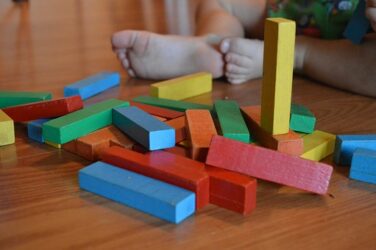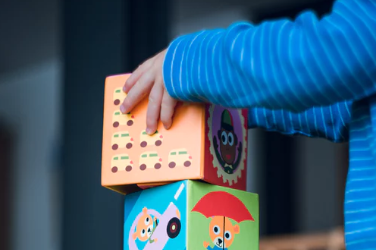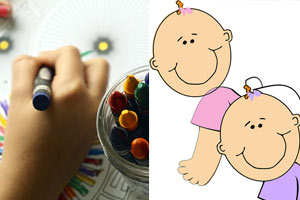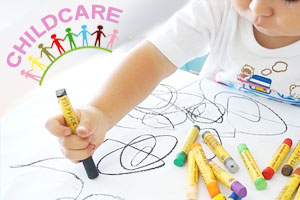Montessori Education Options in Ireland

Montessori teaching is an alternative teaching method for young children which is applied in a preschool setting and focuses on a child’s activity and observing their behaviour. The Montessori method of teaching was developed by Italian physician Maria Montessori. The method views children as naturally eager for knowledge and capable of initiating learning independently when in a sufficiently supportive and well-prepared environment. Conventional measures of achievement, such as grades and tests are discouraged. Maria Montessori developed her system in the early 1900s through scientific experimentation with her students; the method has been used since in many parts of the world, in a wide variety of childcare and school settings.
Montessori Courses in Ireland: Complete Guide to Training & Career Options
The Montessori approach to early childhood education focuses on hands-on learning and child-led development. With increasing demand from parents seeking holistic preschool education, Montessori schools in Ireland have grown significantly.
This guide explains how to become a Montessori teacher in Ireland, the qualifications you need, recognised training routes, online Montessori courses, and career opportunities — including self-employment options.
Table of Contents
- Why Choose Montessori Education?
- Role of a Montessori Teacher
- Qualifications & Requirements in Ireland
- Step-by-Step Pathway to Qualification
- Montessori Course Providers in Ireland
- Career Opportunities
- Self-Employment Options
- Continued Education & CPD
- Useful Irish Education Resources
Why Choose Montessori Education?
The Montessori philosophy supports independent learning, creativity, emotional intelligence, and respect for each child’s pace of development. Montessori settings are nurturing, calm and structured to encourage exploration and confidence.
Role of a Montessori Teacher
A Montessori teacher prepares a purposeful learning environment, observes each child’s needs, and guides them toward activities that support development. Rather than directing learning, Montessori educators facilitate it and act as role-models for independence and respect.
Qualifications & Requirements in Ireland
To work in an early years setting in Ireland (including Montessori preschools), you must hold a recognised qualification:
- Minimum: QQI Level 5 Early Learning & Care
- Room Leader: QQI Level 6 qualification
- Montessori Specialisation: Level 6 with Montessori modules
- Primary Montessori Teaching: Montessori degree + Teaching Council eligibility (specific routes apply)
Many Montessori training programmes integrate Síolta and Aistear, Ireland’s national early-years frameworks.
Step-by-Step Pathway to Becoming a Montessori Teacher
- Complete QQI Level 5 in Early Learning & Care
- Progress to Level 6 with Montessori modules
- Complete placement/practical hours
- Optional: Level 7/8 degree in Montessori or Early Childhood Education
- Continue professional development (Montessori specialisms, Aistear/Síolta)
Montessori Course Providers in Ireland
Examples of education providers offering Montessori courses include:
- Portobello Institute
- Chevron Training
- The Open College
- St Nicholas Montessori College
- Local PLC colleges offering QQI Level 5 & 6 programmes
Full-time, part-time, blended and online Montessori courses are available.
Browse Montessori & childcare courses in Ireland:
Childcare & Montessori Courses on Findacourse.ie
Career Opportunities in Montessori Education
Once qualified, you can work as:
- Montessori teacher in early years settings
- Room leader or preschool supervisor
- Early-years educator (ECCE programme)
- Montessori assistant
- Special needs assistant (SNA) – with additional qualification
With experience and further study you can progress to:
- Preschool manager
- Early-years education consultant
- Montessori programme coordinator
Self-Employment & Montessori Business Options
Montessori teachers in Ireland can also start their own businesses, such as:
- Montessori preschool
- Childcare service
- Montessori tutoring or learning workshops
- Montessori home-education support
- After-school or holiday Montessori programmes
Starting a Montessori preschool requires Tusla registration, the correct premises, business planning, and staffing compliance.
Continued Education & Professional Development
- Montessori specialist certificates (Sensorial, Maths, Language, Culture)
- Level 7 & 8 Early Childhood degrees
- Leadership/management training in early education
- Montessori CPD workshops & online courses
Useful Resources for Irish Montessori Students
- Teaching Council Registration: teachingcouncil.ie
- Tusla Early-Years Regulations: tusla.ie
- Aistear & Síolta Frameworks: ncca.ie
- Montessori International Info: montessori-ami.org
These resources help you navigate Irish qualifications, regulations and course options.
Ready to start your Montessori journey? Explore childcare and Montessori courses in Ireland here:
View Courses on Findacourse.ie



